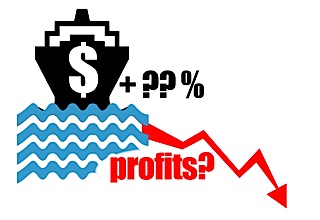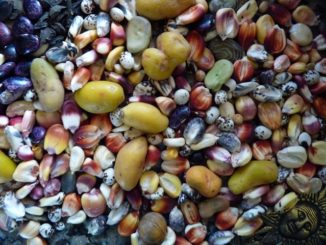Industrial farming’s appetite for export is tempered by its competitivity in distant markets. In a newsletter this week, French meat industry body SNIV warned its members that the cost of shipping pigmeat in refrigerated containers to Asia faced steep rises of USD 1,000 to 1,500 a tonne in 2013.
 Export trade, SNIV argues, comes at a price. Export trade is not an end in itself, at any price. While rates for ambient container traffic may be depressed for a number of reasons, this does not mean that specialist shipping of food around the world costs any less to deploy.
Export trade, SNIV argues, comes at a price. Export trade is not an end in itself, at any price. While rates for ambient container traffic may be depressed for a number of reasons, this does not mean that specialist shipping of food around the world costs any less to deploy.
Clearly, if the CAP is a food policy, it cannot be based on the cheerful assumption that cheap freight will somehow be a permanent feature of the global economy. Export restitutions for third country exports did not save France’s largest CAP beneficiary, the Doux poultry group, from administration this summer. More than EUR 50 million a year in third country export funding did not save France’s largest poultry exporter from a financial meltdown.
Writing in his latest newsletter, Irish farming minister Simon Coveney welcomed opportunities for third country trade with South Africa and the United Arab Emirates. The Irish presidency is committed to third country exports, but these will have to be evaluated in a commercial context and cannot be supported by a food policy.
This is not a numbers game but a structural issue. One of many that have gone unanswered in previous CAP reform debates.





